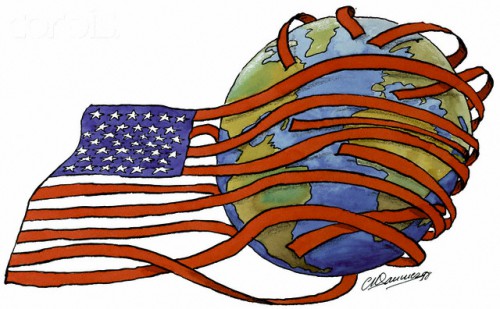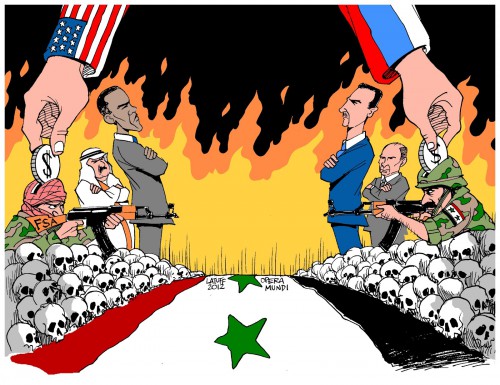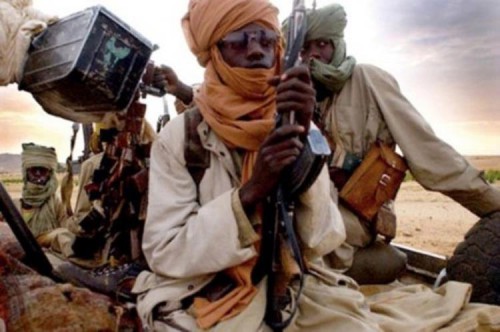
CHI MANOVRA I “MODERNISTI ISLAMICI”?
Enrico Galoppini
Ex: http://www.eurasia-rivista.org
Per gentile concessione della rivista di studi afro-asiatici “Africana”, mettiamo a disposizione l’articolo di Enrico Galoppini Chi manovra i “modernisti islamici”? (XVII, 2012, pp. 141-148: http://www.giovanniarmillotta.it/africana/africana12.html [1]).
“Timbuctu è in mano agli integralisti islamici”: così titolavano giornali ed agenzie ai primi di luglio 2012, che riferivano di distruzioni di moschee e santuari da parte dei militanti di Ansâr ed-Dîn, i quali avevano preso il controllo della città santa del Mali.[1]
Qui non c’interessa entrare nel merito dello scontro tra questi e il governo, e tra i medesimi e i tuareg “laici”, fino a pochissimo tempo prima loro alleati. Ma una cosa va detta: senza l’eliminazione di Gheddafi, che non era affatto un “ateo”, questo pandemonio in Mali – che segue quello in atto in Libia, con protagonisti vittoriosi dalle analoghe ristrette vedute – non sarebbe stato possibile. Quindi se lo segnino bene tutti quelli che adesso piangono lacrime di coccodrillo, perché chi più chi meno hanno tutti lavorato per produrre questo capolavoro. E lasciamo pure perdere il fatto che Timbuctu è considerata “patrimonio mondiale dell’umanità” dall’Unesco, poiché l’importanza, il valore di una città, di un sito, e tanto meno di un luogo sacro, non viene certo data, come si vorrebbe far credere, dalla “certificazione” da parte di un’agenzia delle Nazioni Unite, che sappiamo per quali motivi sono state istituite: preparare il “governo unico mondiale” senza Dio, con tutte le conseguenze che ne derivano.
Detto questo, passiamo ad esaminare perché questi “fondamentalisti” infieriscono con particolare veemenza e furore su quei luoghi di culto islamici, e sottolineiamo islamici, che ospitano le spoglie di personaggi considerati “santi”, modelli di pietà e virtù dalla locale popolazione (e non solo), la quale – dopo averli seguiti finché erano in questo mondo – vi si reca in “visita” [2] per beneficiare della baraka che ne promana, delle sue “influenze spirituali” ed ottenere così una “intercessione” presso il Signore, e non certo per adorarli quali “dei”. [3]
Per prima cosa, al riguardo del “culto dei santi”, degli awliyâ’ [4] in Islam, vi è da dire che esso è completamente “islamico”, mentre tutti questi “modernisti”, “salafiti”, “wahhabiti” e chi più ne ha più ne metta lo ritengono “blasfemo”, da “idolatri”. La loro argomentazione principale è che per salvaguardare il principio del tawhîd (Unità ed Unicità divine: il Principio non può che essere uno e unico) bisogna evitare assolutamente tutto ciò che fa incorrere il musulmano nell’errore di “associazionismo” (shirk), ovvero quello di attribuire a Dio dei “pari”.
Ora, fin qui (la concezione “non duale”) siamo tutti d’accordo, tuttavia per ‘eccesso di zelo’ accade che questi calvinisti d’Arabia, a furia di togliere legittimità a tutto quel che può risultare un supporto, un sostegno intermedio, una ‘rampa di lancio’ per facilitare l’elevazione del credente sino al grado più alto, quello della Realizzazione spirituale appannaggio solo degli “eletti”, finiscono per fare completamente “terra bruciata” lasciando le persone, ancorché animate da buone intenzioni, alla mercé della cosa più pericolosa che esista: il proprio metro di giudizio [5].
I “modernisti”, infatti, da cui derivano i “salafiti”, i “takfiri” eccetera, ritengono che ciascuno, nel proprio cammino di “conoscenza” (realizzare intimamente, con “certezza assoluta”, che tutto è Dio e che Dio è ovunque) debba fare affidamento solo sul proprio sforzo; che ogni essere umano in fondo sia “il maestro di se stesso”. Tutt’al più riconoscono l’autorità di “sapienti” usciti da determinate scuole, tutti invariabilmente della loro ideologia. Ma guai a parlare di “santi”, di “realizzati”, di “maestri”: per loro non ne esistono, salvo poi prendersene di virtuali, “di carta”, televisivi, o peggio ancora su internet, e qui cade a pennello la selva di canali satellitari che rincitrulliscono chi crede che basti spaparanzarsi in poltrona a casa e sorbirsi il predicozzo di qualcheduno che “buca lo schermo” da uno studio televisivo per ritenere di avere una guida autorevole e, soprattutto, in contatto con le “entità” benefiche che abitano il “mondo dell’invisibile” (‘âlam al-ghayb).
Ora chiunque può comprendere che se si nega che vi possano essere uomini in grado di stabilire in vita, da quaggiù, una “connessione” di questo tipo, si nega implicitamente l’esistenza del “mondo dell’invisibile”, menzionato a chiare lettere dal Corano [6].
Per questi Savonarola dell’Islam, da dottrina completa e quindi vera nella misura in cui traduce in linguaggio intelligibile per gli uomini di un’epoca (quella del Kali Yuga) [7] i dati della metafisica (che per sua essenza è una), l’Islam si trasforma in “Islamismo”, in una “ideologia religiosa”. Un po’ come il Sionismo, che lungi dal rappresentare l’Ebraismo è nient’altro che una sua interpretazione ideologica che grazie all’azione concomitante di vari fattori ha preso completamente la scena al punto che sia i suoi fautori sia i suoi
detrattori lo identificano tout court con la tradizione ebraica. Con il moderno “fondamentalismo islamico” il discorso è analogo: si tratta né più né meno che di un’interpretazione ideologica dell’Islam, che ipso facto produce un’esiziale incomprensione di cosa sia davvero l’Islam, il quale diventa, agli occhi di chi non ne sa nulla (gli “occidentali”), comprensibilmente odioso e “barbaro” [8].
Siamo dunque di fronte ad una manifestazione di “riduzionismo”, ad una semplificazione risultante da una fondamentale incomprensione che, com’è tipico di chi ha compreso ben poco, si vuole imporre a tutti quanti. In pratica si riconosce che esiste la vetta della montagna e che bisogna arrivarci, ma sul percorso e, soprattutto, sul fatto che esistano delle “guide esperte”, si glissa allegramente. Si pensi un po’ a che fine farebbe uno sprovveduto ed improvvisato alpinista qualora decidesse di salire sulla vetta dell’Everest armato solo di cartine, diari di famosi scalatori e tutto il meglio dell’attrezzatura disponibile! Certo, alla fine ciascuno fa le ‘sue’ esperienze, ed in questo il suo viaggio è ‘unico’, diverso da quello degli altri, mentre lo sforzo profuso non è invano (non è la stessa cosa farsi portare lassù con un elicottero!), ma la meta è la stessa per tutti e da lassù si vede lo stesso panorama: si domina il mondo e si comprende che cosa è il “reale”. Questi “modernisti”, invece, convintisi che non è possibile raggiungere la vetta della montagna preferiscono divorare biblioteche intere di saggi ed enciclopedie sull’alpinismo e l’arrampicata, gareggiando a chi ne sa di più, ma guardiamoci bene dal prenderli come “guide” perché al primo crepaccio, senza alcuna esperienza, vi finirebbero dentro trascinandovi gli incauti compagni di cordata.
La ‘montagna’, poi, bisogna amarla, e non farne un argomento da “record”, come ha spiegato un’infinità di volte Reinhold Messner. L’analogia funziona anche qui: non si può sperare di ottenere “virtude e conoscenza” solo con la “testa”… Cosa resta dunque a chi fa della “conoscenza” solo una questione d’erudizione? Per di più brandendola come una scure all’indirizzo di “apostati” (kuffâr) di cui si ha bisogno come l’aria per fortificarsi nella convinzione d’avere sempre ragione? L’affidamento alle facoltà razionali.
Ne abbiamo una plastica rappresentazione nella questione della distruzione di una porta di un celebre mausoleo a Timbuctu, tenuta chiusa per decenni, o forse ancor di più. La tradizione locale riporta che l’apertura di quella porta sarebbe avvenuta solo “alla fine dei tempi”… Allora, gli aderenti a Ansâr ed-Dîn, in segno di sfida alla “creduloneria” locale, hanno abbattuto quella porta, e naturalmente non è successo “niente”… Al che avranno certamente gongolato pavoneggiandosi per questa vittoria sulla “superstizione”!
Essi, poveretti, non si rendono conto che il punto importante non che “non è successo nulla”. L’importante è invece che hanno sfondato quella porta, che hanno superato “il limite”. Così hanno, senza rendersene conto, “inverato la profezia”. Ma facendo affidamento sulle mere facoltà razionali dell’uomo – il che li rende indifesi di fronte allo psichismo inferiore – essi agiscono credendo di operare in un senso quando in realtà lavorano per forze intente a realizzare l’esatto contrario di ciò in cui credono. In pratica, essi ritengono di agire per “sfatare la profezia”, mentre sono proprio loro che la “realizzano”! Tutto ciò è terribilmente
perfetto ed inesorabile.
Fra l’altro la distruzione della porta di Timbuctu e di vari altri santuari in tutto il mondo islamico, significativi anche perché radicano l’Islam in un tessuto locale, esattamente come i santuari cattolici (e guarda caso i protestanti non ne hanno), è analoga alla demolizione dei “buddha di Bamyan” in Afghanistan ad opera dei Talebani. Come in quell’occasione, si parla di “scempio verso la cultura”, di intolleranza religiosa” e via discorrendo, senza cogliere il punto essenziale, ancor più semplice da individuare quando a cadere sotto la furia dei “puritani islamici” sono santuari e luoghi di culto dell’Islam stesso.
Si tratta forse di ‘sigilli’, di opere di ‘protezione’ che finché sussistono impediscono la penetrazione (o la fuoriuscita) d’influenze dissolutrici? Lo sviluppo degli eventi, in tutto il mondo islamico, non tarderà a mostrarci se ci siamo sbagliati o meno…
Ma non è finita qui. Perché l’altra grande domanda che a questo punto dobbiamo porci è: chi manovra i “modernisti islamici”?
Segnaliamo subito un fatto curioso: da quando è cominciata la cosiddetta “Primavera araba” [9], i “militanti islamici” sono ridiventati improvvisamente “simpatici” [10], da che erano dipinti – fino ad un paio d’anni fa, quando Obama, novello Kennedy, “tese la mano all’Islam” col suo discorso del Cairo – come degli autentici mostri che minacciavano i cosiddetti “Paesi arabi moderati”.
Abbiamo spiegato nella prima parte di quest’articolo qual è la mentalità di questi “modernisti” e da che ‘pulpito’ – forse sarebbe meglio dire da che ‘abisso’ – giunge la loro ‘predica’. Abbiamo anche indicato in ogni forma di “modernismo” un fenomeno di riduzionismo, quindi di fondamentale incomprensione di che cosa siano le realtà spirituali, che sono per l’appunto “realtà”, di una concretezza diversa da quella delle cose ordinarie, ma non bei discorsi e né la sopravvalutata “erudizione” di cui si vantano troppi musulmani
odierni.
D’altra parte, se il buongiorno si vede dal mattino, sono da attendersi queste ed altre ‘imprese’, ben poco…‘edificanti’: quando i wahhabiti (che non sono sunniti!) [11] conquistarono per la prima volta Medina, nel XVIII secolo, non esitarono a distruggere persino la tomba del Profeta dell’Islam, e ancora oggi di fatto impediscono il regolare svolgimento degli atti di devozione, al suo cospetto, che milioni di fedeli anelano a compiere quando si recano in Arabia per il Pellegrinaggio (o la “visita”, la ‘umra) presso “la Casa di Allâh”.
La furia ‘iconoclasta’ di questi “puritani dell’Islam” (motivo per cui van d’accordo alla perfezione con l’Angloamerica) non accenna a placarsi, dall’Egitto alla Tunisia: nel primo, addirittura, in un delirio che non teme di sfociare nella buffoneria, vi è chi propone di demolire le piramidi, simboli del “paganesimo” [12]! E non poteva mancare la Libia, vittima predestinata dopo la destabilizzazione dei due Stati vicini, sempre in nome della “lotta alla superstizione” e di un “Islam autentico” dai tratti razionalistici che si sta diffondendo
purtroppo a macchia d’olio anche in Europa grazie all’azione di organizzazioni che, commettendo un pasticcio inescusabile, cercano, un po’ perché ci credono e un po’ perché sono dei furbacchioni, di presentarsi presso “istituzioni” compiacenti come i portabandiera di un assurdo ed improponibile connubio tra “Islam e democrazia”, peraltro sostenuto a livello accademico da una sfilza di “sociologi dell’Islam” uno più incompetente e in malafede dell’altro. E tutti uniti appassionatamente – gli uni protagonisti della “primavera”, gli altri incanalando il sapere universitario in un alveo rassicurante – al servizio della loro vera ‘madrepatria’: il “mondo moderno”, nel quale si trovano entrambi a loro agio e di cui la “democrazia” è il totem indiscutibile, tanto che – senza spiegare bene da dove ciò trarrebbe legittimità dottrinale – appena una “rivolta” va a buon segno i Freedom Fighters sotterrano l’ascia di guerra ed inaugurano la stagione dei ludi elettorali, mostrando felici ai media delle stesse cricche usurocratiche che hanno finanziato le “ribellioni” il pollice intriso d’inchiostro di chi finalmente s’è messo al collo il giogo della partitocrazia e del relativo governo dei peggiori.
In Libia, quelli che ‘qualcuno’ ha denominato “drogati” e “ratti della Nato”, dopo aver servito da truppe cammellate dei “liberatori”, si sono dunque dati alla loro attività preferita [13], che è quella di profanare ciò che è completamente fuori dalla loro portata intellettuale [14]. Essi si dedicano a maledire e distruggere ciò che non capiscono, perché come tutti gli ignoranti, adusi a semplificare, vanno fuori di testa al pensiero che esista qualche cosa in grado di sfuggirgli, che gli è completamente precluso. E, colmo del ridicolo, si pavoneggiano delle loro nefande azioni, facendo a gara a chi grida più a perdifiato Allâhu akbar (“Iddio è più grande”), come per dimostrare che siccome l’ira del santo di turno, dell’intimo di Dio (il walî), non s’è scaricata sugli autori del gesto, ciò significherebbe che tutta la devozione nei suoi confronti era decisamente mal riposta poiché il Signore non ha fatto nulla per difenderne il mausoleo, né ha ‘folgorato’ gli autori della distruzione. Sembra di vedere all’opera dei positivisti ottocenteschi, tanto queste ‘dimostrazioni’ sono puerili e demenziali [15]. Questo punto non verrà mai sottolineato abbastanza per comprendere la “decadenza islamica” rappresentata da queste tendenze “moderne”, che solo qualcuno a digiuno di che cosa sia la Tradizione può scambiare per “rinascita”.
Una delle ultime bravate di questo tipo nella “Libia liberata” (quella per intendersi, ripiombata sotto il tallone dell’usura e dei suoi “prestiti”, quella del nuovo sottosviluppo camuffato da “tradizione”, quella della svendita di tutti i settori strategici che configurano la sovranità di una nazione, quella di un tribalismo inconcludente) è stata la distruzione, da parte di una massa di pecoroni aizzati dal peggior tipo di ‘pretaglia’ che esista [16], della moschea-mausoleo di ‘abd as-Salâm al-Asmar [17], di cui esiste anche una sconcertante testimonianza filmata [18].
Questo luogo di culto e di devozione, che conteneva circa 5.000 volumi finiti in cenere (avranno controllato che non ci fossero opere di Ibn Taymiyya, il loro preferito!), non è l’unico finito sotto le grinfie di questa ciurmaglia fanatizzata. A Tripoli, come scimmie ammaestrate, hanno demolito a colpi di bulldozer [19] un altro importante luogo di devozione (islamico, sottolineiamolo ancora per chi avesse cominciato a pensare che questi “musulmani” ce l’hanno con dei non musulmani) [20]. Ma al santuario di Sîdî Ahmed az-Zarrûq [21], gli stessi invasati hanno superato se stessi, svignandosela con la salma del sant’uomo lì sepolto [22].
Le “autorità” sedicenti tali, giunte a Tripoli sul ‘tappeto volante’ della British Airways, prendono le distanze, ma è un film già visto, poiché anche in Italia nei primissimi anni post-“Liberazione” erano all’opera, con licenza di uccidere e devastare, bande di “puri dell’Idea resistenziale”, evidentemente lasciate fare su ordine del vero padrone, che non era certo il governicchio degli ex di “Radio Londra” e dei ‘villeggianti’ al “confino”, ma quello che aveva stabilito la subitanea eliminazione del capo del Fascismo e la sparizione della sua famosa cartella con documenti “compromettenti”.
A proposito di bulldozer, è interessante notare che quando Israele distrugge le proprietà palestinesi coi medesimi sbrigativi mezzi, si scatena giustamente un’unanime esecrazione da parte islamica, ma in questo caso, specialmente da parte dei ‘primaverandi’, felici delle loro ‘moschee dell’Ikea’ [23], non si erge la benché minima critica.
I leader religiosi di questi ultimi, inoltre, sono perennemente imbufaliti, lanciano anatemi a destra e a manca, puntano il dito sempre contro qualcuno, ma poi, quando arrivano le palanche di qualche “emiro”, come per incanto diventano mansueti come agnellini e disposti a tollerarne ogni marachella: pecunia non olet, specialmente se sa di petrolio.
Mi chiedo come ci si possa prendere a “guida spirituale” individui che non promanano alcun senso di pace, di fratellanza, di amore [24] nel vero senso della parola, pur nelle necessarie intransigenza ed adesione allo spirito vivificatore della lettera del Messaggio (Risâla), pena lo scadimento nello “spiritualismo” e nell’irrazionale, l’altro polo dello sfaldamento dell’autentica spiritualità (e con essa dell’uomo al quale è destinata), assieme al letteralismo razionalista di cui questi “duri e puri” sono la più recente manifestazione.
Mi chiedo anche dove vogliono arrivare quando avranno consegnato tutte le sponde meridionale ed orientale del Mediterraneo a costoro. Ci metteranno il terrore mediatico addosso per imbarcarci così in una nuova stagione dello “scontro di civiltà” a beneficio del divide et impera nel Mediterraneo? La Nato li aiuterà ad attaccarci e a colonizzarci qualora tentassimo di sbarazzarci dei nostri pluridecennali occupanti?
Eh sì, perché questi signori – a parte il pulcherrimo attentato dell’11/9 attribuito ad Osama bin Mossad – non sembrano affatto interessati a nuocere all’America e all’Inghilterra, che anzi ammirano in cuor loro e poi odiano perché l’ammirazione non è ricambiata, ma sono costantemente disposti a seminare morte e distruzione in tutti quei paesi che periodicamente l’Occidente individua come “il nemico” da distruggere: prima l’Afghanistan con la scusa del “comunismo ateo” (perché, l’Occidente non è “ateo”?), poi la Jugoslavia con la scusa della “pulizia etnica” (a senso unico), poi l’Algeria con la scusa del “pericolo fondamentalista” (da essi stessi alimentato per rovesciare un governo inviso!), poi la Cecenia con la scusa che comunque i russi sono sempre “comunisti” ed “ubriachi”, poi la “primavera araba” con la scusa delle “tirannie” (a geometria variabile)… E il prossimo obiettivo su commissione chi sarà? L’India perché
“adorano le vacche”? La Cina perché mangiano maiale con funghi e bambù? La Chiesa cattolica perché la Trinità è “pagana”? L’Iran e gli sciiti perché sono “eretici”? Insomma, la lista dei “cattivi” consegnata da qualche James Bond assieme alla valigetta coi dobloni è ancora lunga, e nemmeno alla fine si scorge il nome dell’Angloamerica. No, per loro, alla prova dei fatti, e non di qualche fanfaronata plateale che non costa nulla, il problema non sussiste.
Qualcuno piuttosto famoso tra i musulmani, l’Imam Khomeyni, certamente consapevole che l’Avversario è ben altro che un accidente del mondo, ebbe a definire l’America “il Grande Satana” e una certa concezione della sua medesima religione “l’Islam americano”. Si dice anche che l’astuzia più abile del Demonio sia quella di far credere che non esiste. Ecco, questi “modernisti islamici” non saranno arrivati a tanto, ma di sicuro lo scambiano di continuo con qualcun altro.
http://www.cese-m.eu/cesem/2014/01/chi-manovra-i-modernisti-islamici/[2]
NOTE
1. ROSSELLA BENEVENIA, Mali: integralisti distruggono entrata moschea a Timbuctu, “Ansa.it” 3 luglio 2012.
2. Il termine arabo per “visita” è ziyâra, dal verbo zâra/yazûru, che significa appunto “visitare”, utilizzato anche in senso più generale e meno “tecnico”.
3. Su tale importantissima pratica, riscontrabile in moltissime tradizioni, cfr. NELLY AMRI, Le corps du saint dans
l’hagiographie du Magherb médiéval, pubblicato il 5 settembre 2012 sul sito “al-Simsimah” (http://alsimsimah.blogspot.be/2012/09/le-corps-du-saint-dans-lhagiographie-du.html).
4. Sing. walî, da una radice che veicola il significato di “vicinanza”, “amicizia”, quindi di “governo per conto di” (in questo specifico caso, “per conto del Signore”).
5.Sulla questione della “liceità”, dal punto di vista islamico, della pratica della “visita” alle tombe dei santi e di tutto quel che vi attiene, un testo di riferimento è Rudûd wa munâqashât ‘alà mâ warada fî kutayyibât “ash-shirk wa
wasâ’iluhu ‘inda fuqahâ’ al-madhâhib al-arba‘a” [Repliche e discussioni riguardo ai libelli (della serie) su “L’associazionismo e i suoi strumenti presso i giurisperiti delle quattro scuole di diritto”], quello pubblicato dalla Idârat al-iftâ’ wa al-buhûth – Qism al-buhûth [Direzione delle fatwa e delle ricerche – Dipartimento per le ricerche] (senza riferimenti di luogo e data). Qui, per “associazionismo” s’intende quel che talvolta è tradotto malamente con
“politeismo”: tecnicamente, lo shirk consiste nell’associare, nella pratica e nel pensiero, altri “dei” all’Unico Dio; si tratta, in altre parole, della sanzione dell’errore in cui cade chi professa in qualsiasi modo una concezione dualista.
6. A partire dalla sûra II, v. 3.
7. Sulla dottrina dei “cicli cosmici”, una delle migliori opere disponibili è quella di GASTON GEORGEL, Le quattro età
dell’umanità, (trad. it.) Il Cerchio, Rimini 1982 (ed. orig. In francese Archè, Milano, 1975).
8. Qui per “occidentali” non s’intende coloro che abitano una determinata area del pianeta, bensì tutti quelli che
condividono, adeguandovi il loro modo di vita, la visione del mondo “moderna”, caratterizzata essenzialmente all’ateismo (che può camuffarsi in vari modi, tra i quali vi è il cosiddetto “laicismo”). “Occidentale”, pertanto, è
sinonimo di “moderno”.
9. Rimandiamo al nostro “Primavera araba” o “fine dei tempi”?, pubblicato su “Europeanphoenix.it” il 6 aprile 2011.
10. Lo sono stati già molte volte, all’epoca della guerra contro l’Urss in Afghanistan, durante lo smembramento della ex Jugoslavia, di nuovo in funzione anti-russa in teatri come la Cecenia, l’Ossezia, il Daghestan ecc.
11. MOHAMED OMAR, I sunniti sono oppressi in Arabia saudita, non in Siria, “Eurasia-rivista.org”, 13 agosto 2012.
12. Cfr. I salafiti: “Le piramidi vanno distrutte. Sono simboli pagani”, “Il Messaggero”, 13 luglio 2012 (http://www.ilmessaggero.it/primopiano/esteri/i_salafiti_le_piramidi_vanno_distrutte_sono_simboli_pagani/notizie/208009.shtml).
13. Cfr. Libia: attacchi ai mausolei, dal sito di “Euronews”, 26 agosto 2012.
14. Qui adottiamo la definizione di “intelletto” secondo la quale si tratta della conoscenza intuitiva, del cuore, non della mente.
15. Si potrebbe proporre un ardito accostamento. Quelli che si radunano sotto la croce e chiedono al Cristo, per tentarlo, perché, se è “veramente il Figlio di Dio”, non chiama una legione di angeli a salvarlo, è come se insinuassero: “Siccome non è stato mandato nessuno a salvarti, sei un ciarlatano! Non sei quello che affermi di essere!”.
16. Quella di casa a Londra che – tanto per citare un esempio della sua mostruosità – incita all’omicidio di altri musulmani (“deviati”, of course) per il solo fatto che non belano all’unisono secondo i dettami dell’“ideologia islamica” che intendono gabellare per Islam. Si veda quel che afferma lo “shaykh” libanese Omar Bakri, di stanza per lungo tempo proprio a Londra: http://www.youtube.com/watch?v=GIgnUuOC4RE&feature=youtu.be.
17. http://en.wikipedia.org/wiki/Abd_As-Salam_Al-Asmar.
18. http://www.youtube.com/watch?v=wnlRVKVuo7M&feature=youtu.be.
19. http://www.youtube.com/watch?v=wnlRVKVuo7M&feature=youtu.be.
20. Cfr. GINETTE HESS SKANDRANI, La nouvelle Libye démocratique, tribaliste, takfiriste, otanesque, oscurantiste…, “La voix de la Libye”, 26 agosto 2012 (http://lavoixdelalibye.com/?p=5574).
21. Qui una biografia: http://alsimsimah.blogspot.it/search/label/Biographie%20de%20Sidi%20Ahmed%20Zarrouqq.
22. Shaykh Ahmad Zarroq’s grave has been desecrated in Libya, articolo del 26 agosto 2012, che segnala anche un filmato in cui un’autorità islamica residente in Canada denuncia in maniera molto chiara l’azione dei salafiti: http://www.youtube.com/user/ShaykhFaisalVideoBlo?feature=watch). Per giudicare il livello “intellettuale” di questi ‘picconatori islamici’, si veda quest’intervista, nella quale il custode della moschea-mausoleo di ‘Uthmân Bâshâ, in Libia, racconta alcuni aneddoti relativi al raid distruttivo di cui è stata oggetto: http://www.youtube.com/watch?v=xzwskvKyWqY.
23. Il riferimento è a luoghi di culto standardizzati, costruiti secondo uno stile inconfondibile, alieno rispetto alla storia e alle tradizioni del luogo, dai quali naturalmente sono banditi tutti gli elementi cosiddetti “superstiziosi”. I Balcani si sono riempiti, da una decina d’anni a questa parte, di moschee di questo tipo.
24 Cfr. ENRICO GALOPPINI, Solo un santo ci può salvare dalla “crisi”, “Europeanphoenix.it”, 22 dicembre 2011, http://europeanphoenix.it/component/content/article/3-societa/206-solo-un-santo-ci-puo-salvare-dalla-crisi.



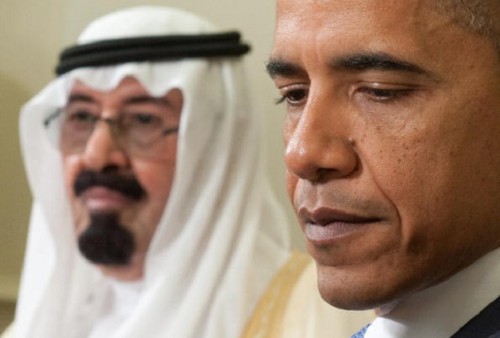

 del.icio.us
del.icio.us
 Digg
Digg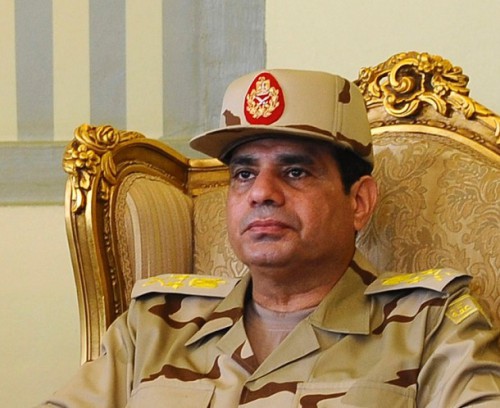
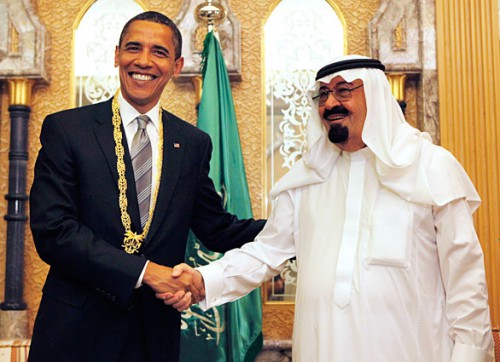
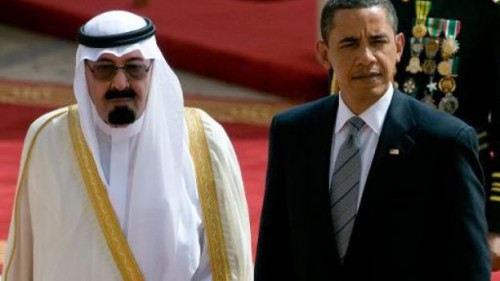
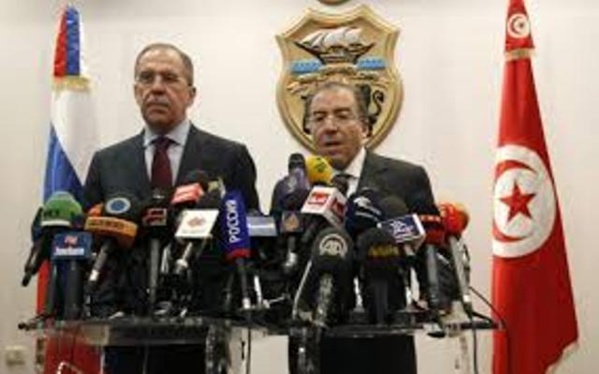
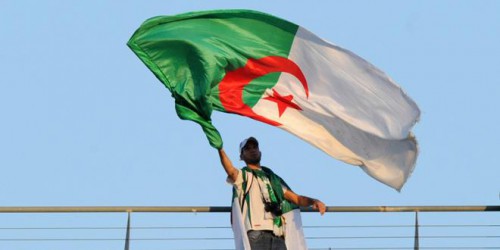
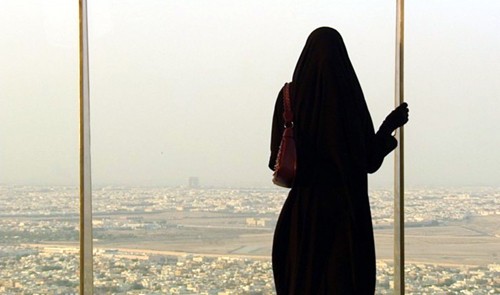
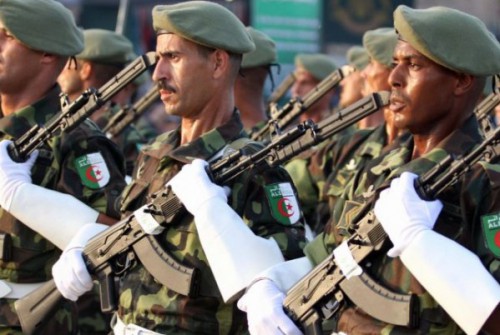
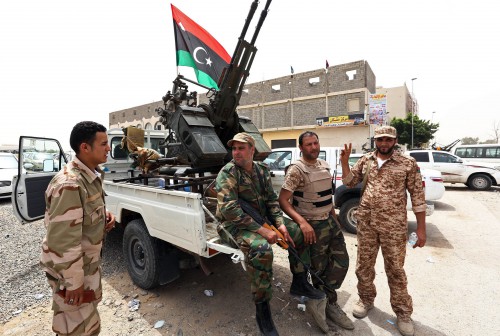
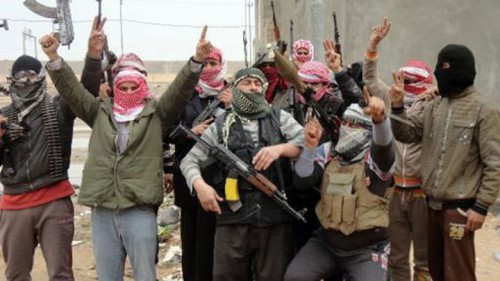
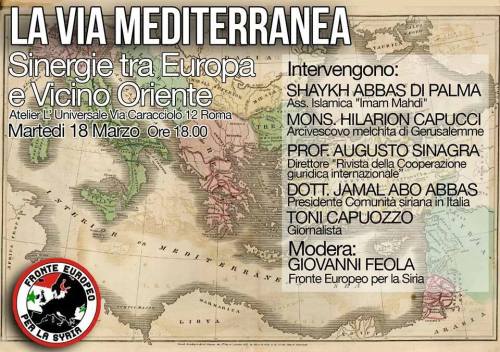




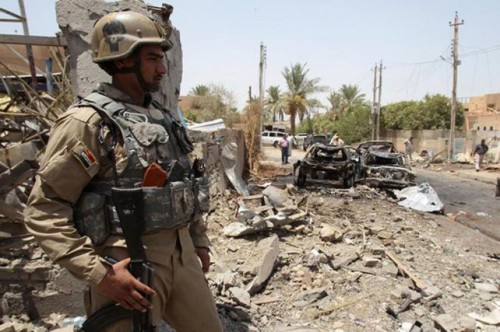
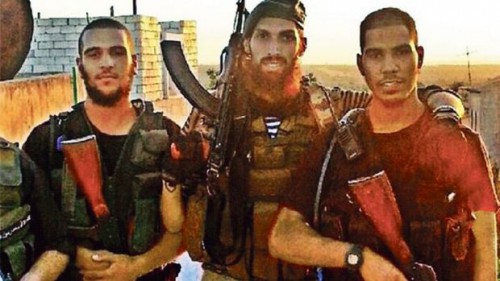
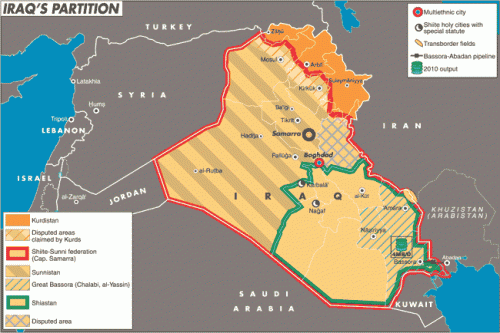
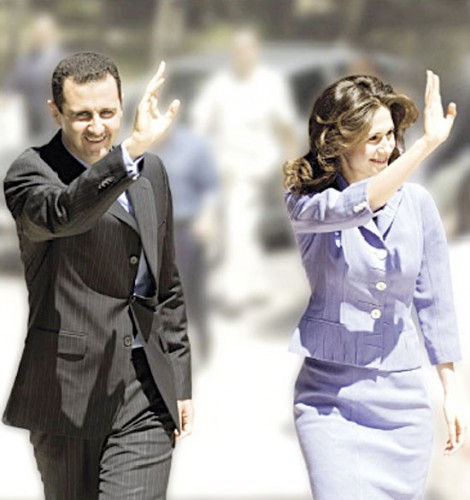
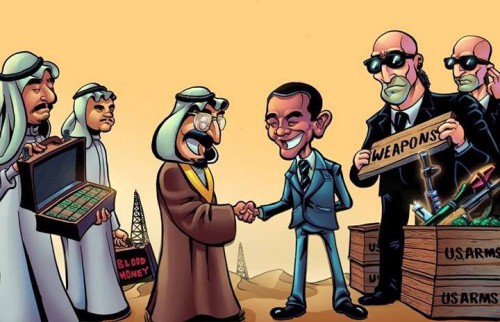
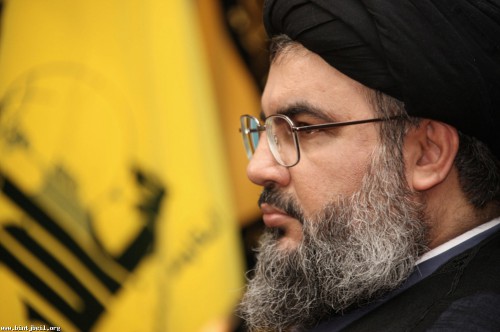
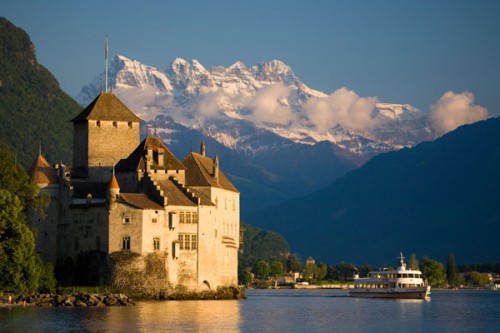
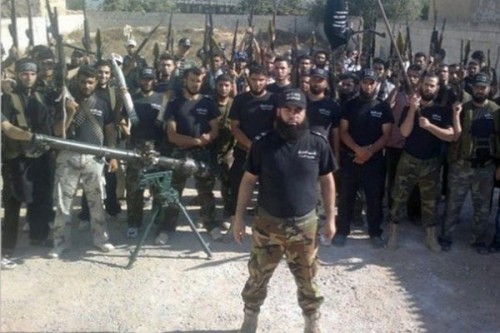

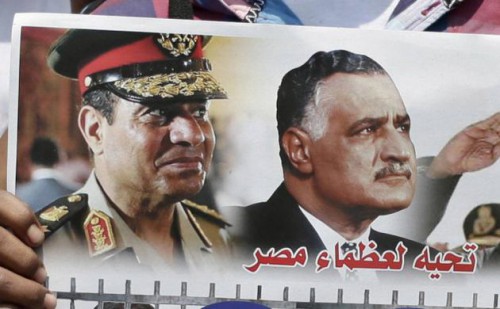
 Mohamed Morsi, déposé le 3 juillet 2013, était le seul président élu démocratiquement en Egypte, et le premier non issu des rangs de l'armée, à diriger le plus peuplé des pays arabes. Tout le week-end, des manifestations et des heurts ont agité le Caire laissant à l'anniversaire des trois ans de la révolution un goût plutôt amer. Le général Mohamed Saïd, chef du bureau technique du ministère de l'intérieur égyptien, a été tué mardi 28 janvier dans la capitale égyptienne par des inconnus qui ont ouvert le feu sur lui, selon les services de sécurité du pays. Cet assassinat survient en pleine vague de répression sanglante de toute manifestation des partisans des frères musulmans et de toute une série d'attentats djihadistes visant les forces de l'ordre.
Mohamed Morsi, déposé le 3 juillet 2013, était le seul président élu démocratiquement en Egypte, et le premier non issu des rangs de l'armée, à diriger le plus peuplé des pays arabes. Tout le week-end, des manifestations et des heurts ont agité le Caire laissant à l'anniversaire des trois ans de la révolution un goût plutôt amer. Le général Mohamed Saïd, chef du bureau technique du ministère de l'intérieur égyptien, a été tué mardi 28 janvier dans la capitale égyptienne par des inconnus qui ont ouvert le feu sur lui, selon les services de sécurité du pays. Cet assassinat survient en pleine vague de répression sanglante de toute manifestation des partisans des frères musulmans et de toute une série d'attentats djihadistes visant les forces de l'ordre.